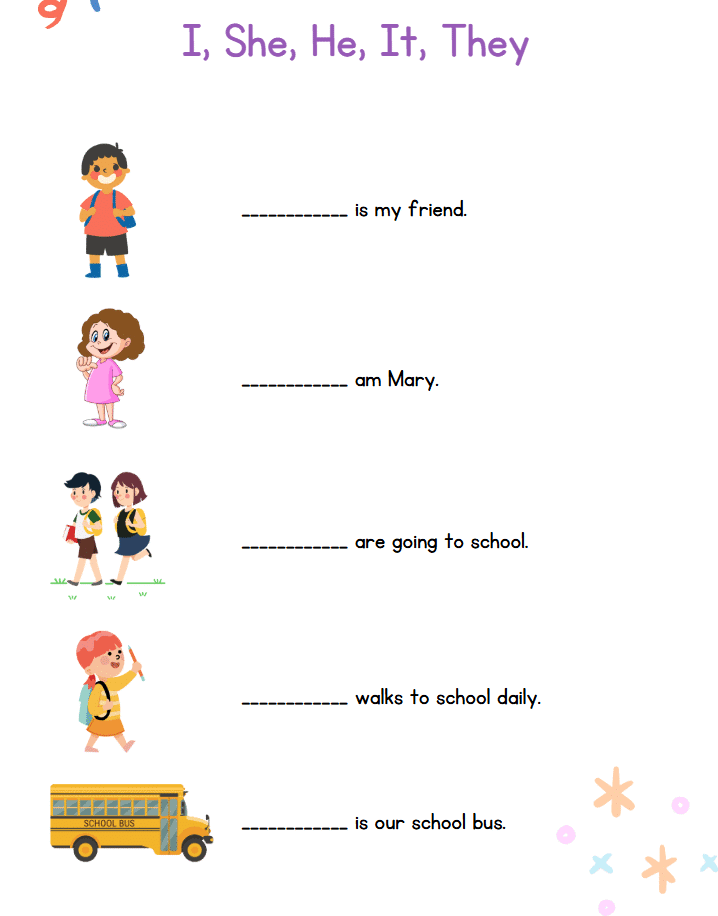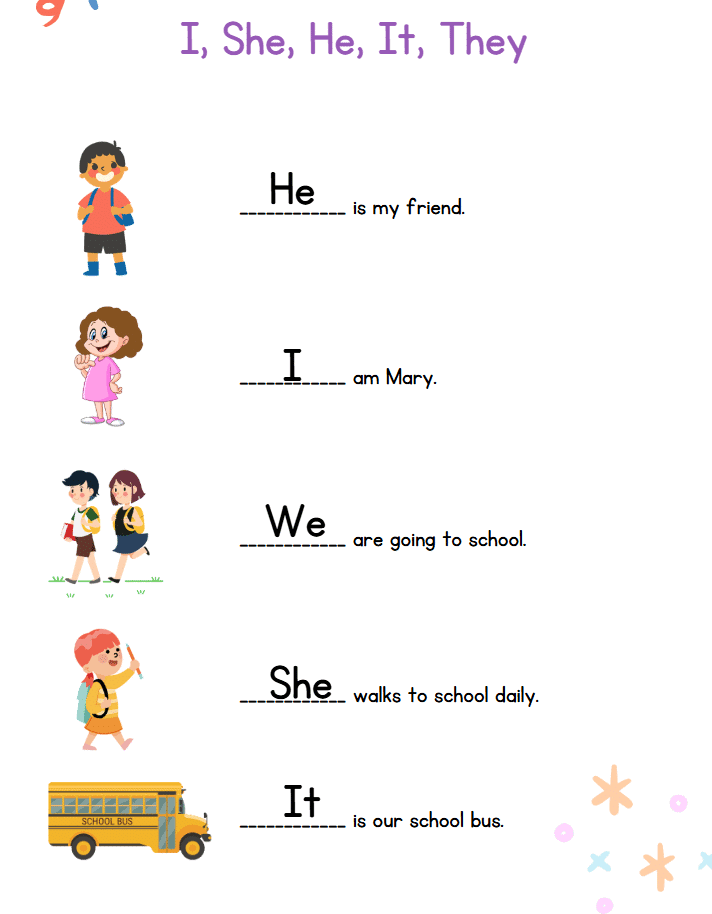Worksheet Solutions: Pronoun - 1 | English Grammar for Junior Classes - Class 1 PDF Download
Q1: Use the correct pronoun for the following underlined words.
(i) The chair is brown. (It/He)
Ans: It is brown.
(ii) My mother is a teacher. (She/He)
Ans: She is a teacher. 
(iii) The bell is ringing. (It/They)
Ans: It is ringing.
(iv) The three boys are flying kites. (They/It)
Ans: They are flying kites.
(v) The mobile is ringing. (It/They)
Ans: It is ringing.
(vi) Mohan and I are going to a birthday party. (They/We)
Ans: We are going to a birthday party.
(vii) Sarla likes to dance. (He/She)
Ans: She likes to dance. 
(viii) The gentleman is my neighbour. (He/She)
Ans: He is my neighbour.
Q2: Underline the pronoun in the following sentences.
(i) She put on a new frock.
Ans: She put on a new frock.
(ii) He gave me the books.
Ans: He gave me the books.
(iii) I gave him a pair of shoes.
Ans: I gave him a pair of shoes.
(iv) It is raining.
Ans: It is raining.
(v) We went to meet Rajat’s grandfather.
Ans: We went to meet Rajat’s grandfather.
Q3: Write the correct pronoun that corresponds to the picture.

Ans: 
Q4: Underline the incorrect pronoun in the following sentences and write the correct pronoun in the space given.
(i) Roshni is not well. He will not go to school.
Ans: Roshni is not well. He will not go to school. She
(ii) Dora is my pet fish. They is black.
Ans: Dora is my pet fish. They is black. It
(iii) Rohan went to market. She is with his brother.
Ans: Rohan went to market. She is with his brother. He
(iv) My sister goes to college. It is a good student.
Ans: My sister goes to college. It is a good student. She
(v) Neha and Pankaj called me. He will not come to the party.
Ans: Neha and Pankaj called me. He will not come to the party. They
|
18 videos|287 docs|31 tests
|
FAQs on Worksheet Solutions: Pronoun - 1 - English Grammar for Junior Classes - Class 1
| 1. What are pronouns and why are they used in sentences? |  |
| 2. What are the different types of pronouns? |  |
| 3. How do pronouns agree with nouns in a sentence? |  |
| 4. Can you provide examples of sentences using different types of pronouns? |  |
| 5. How can I improve my use of pronouns in writing? |  |






















